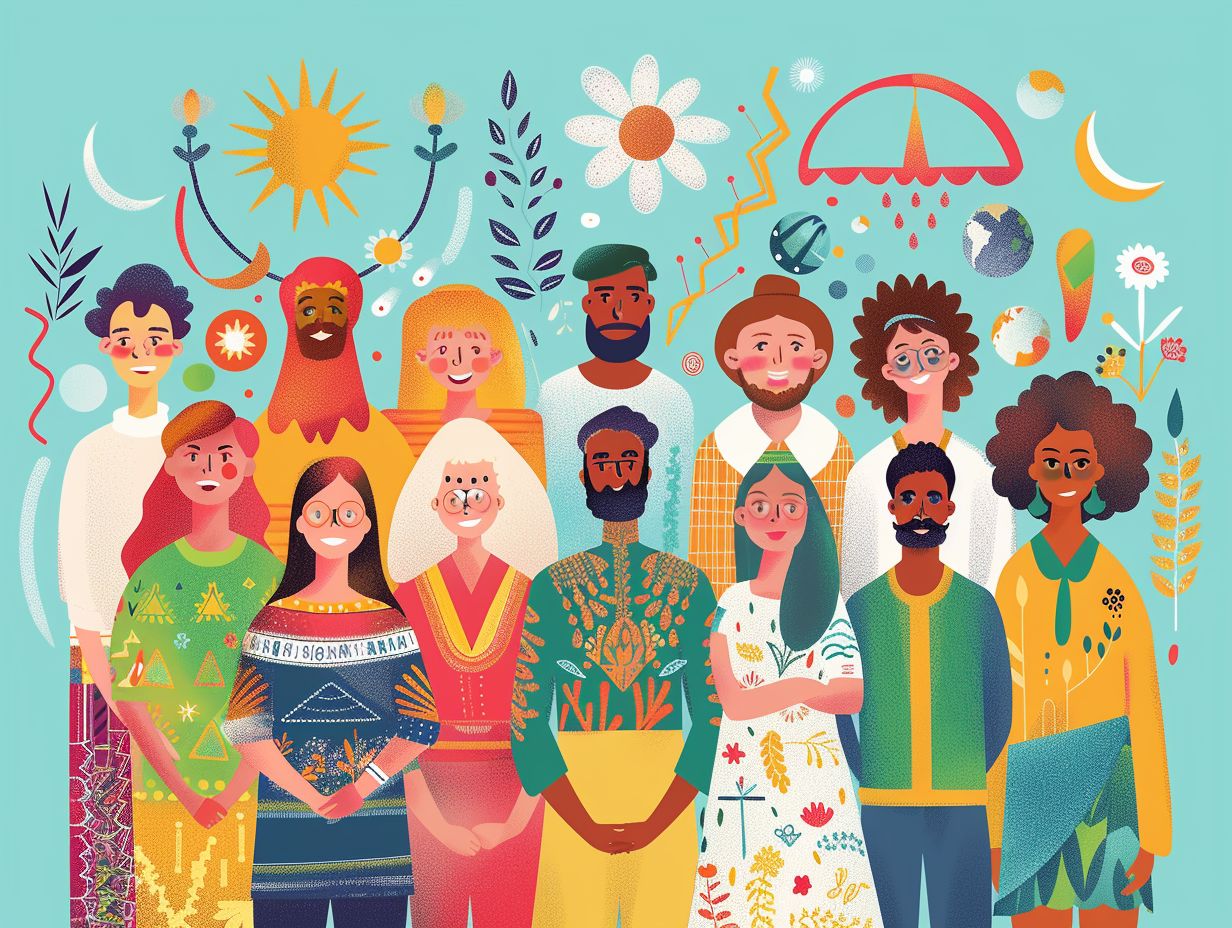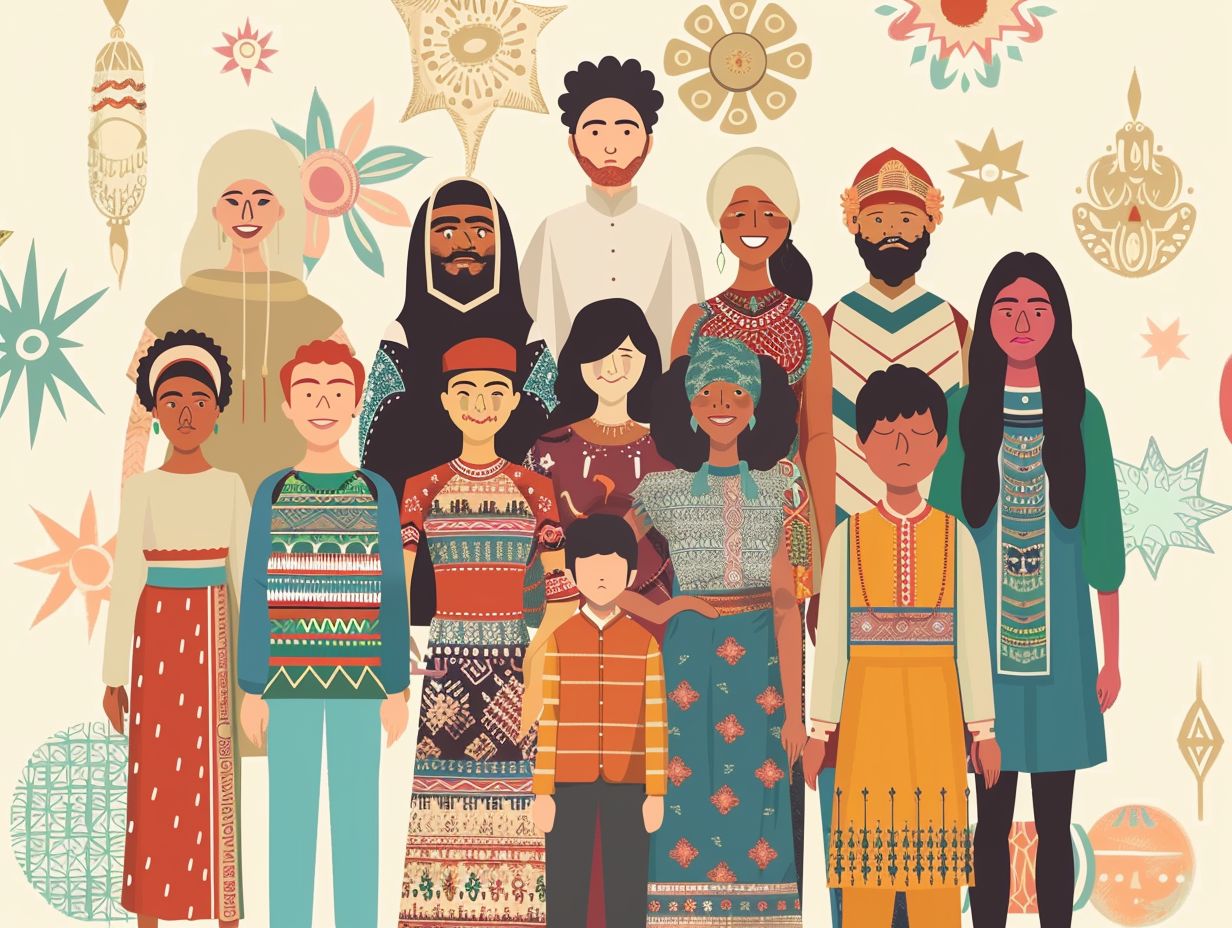Moving to a new country can be an exciting adventure for you, but it also brings its fair share of challenges, including the infamous culture shock.
Let’s dive into what exactly culture shock is, what causes it, and how to spot its signs – whether it’s through physical, emotional, or behavioral symptoms.
We’ll explore strategies together on how to overcome culture shock, whether it’s about embracing a new culture or finding ways to stay connected to your roots.
I’ve got some helpful tips tailored just for you as a new immigrant, from getting ready for the big move to settling into your new surroundings.
If you’re seeking advice on navigating the rollercoaster ride of living in a new country, you’re in the right place! Keep reading for more insights.
Understanding Culture Shock

When you’re a new immigrant, it’s important to wrap your head around culture shock. This whole concept covers different stages of getting used to and fitting into a new cultural setting. You’ll come face-to-face with big cultural gaps, so you might need to join integration programs, get some cross-cultural training, and boost your cultural know-how to keep your mental health in good shape.
Definition and Causes
When you experience culture shock, you might feel confused, anxious, and disoriented as a new immigrant coming face-to-face with major cultural differences like language barriers, social norms, and varying levels of cultural awareness.
These differences in culture can come from various sources, such as language disparities, unfamiliar social conventions, and different values. For example, misunderstandings caused by language barriers can lead to unintended offense and confusion. Social norms like greetings or personal space customs can vary widely from one culture to another, adding to the disorienting experience. Dealing with these language barriers and social norms might make you feel isolated, frustrated, and like you’re struggling to adjust to your new surroundings.
Recognizing the Signs of Culture Shock
When you’re a new immigrant, it’s important to recognize the signs of culture shock to handle stress and homesickness like a pro. This means keeping an eye out for physical, emotional, and behavioral symptoms that might be telling you that culture shock is knocking on your door.
Physical, Emotional, and Behavioral Symptoms
When you’re dealing with culture shock, you might experience a whole range of physical, emotional, and behavioral symptoms. You could feel tired all the time, anxious, and notice changes in your eating habits. It’s super important to tackle these issues head-on for your mental well-being and to handle stress effectively.
You might notice physical symptoms like headaches, stomach aches, or muscle tension creeping in. Emotionally, you might feel lonely, easily irritated, or just plain sad. And behavior-wise, you might find yourself avoiding social stuff, struggling to focus, or even feeling more edgy.
To deal with all these symptoms, it’s key to stick to a routine, keep in touch with your peeps, embrace the new culture with an open mind, and give yourself some TLC with things like deep breathing or meditation to chill out and find some emotional balance.
Strategies for Overcoming Culture Shock

When you’re a new immigrant, it’s crucial to work on strategies to overcome culture shock. You’ll need to embrace coping strategies like building resilience, being patient, improving your communication skills, and increasing your cultural awareness. These steps will help you adjust and adapt to your new environment more easily.
Adapting to a New Culture
When adapting to a new culture, you need to keep an open mind and brush up on your communication skills. Actively getting involved in cultural exchanges and community activities is key to bridging those cultural gaps and making the integration process smoother for yourself.
Approaching a new culture with an open mind really sets the tone for your experience. Being open to different customs, beliefs, and practices can help you gain a deeper understanding and appreciation of diversity.
Don’t miss out on cultural exchange opportunities like language exchange programs, international food festivals, and art exhibitions. These events are great chances to soak in different cultures and expand your horizons.
Getting involved in community activities, such as volunteering at local cultural events or joining multicultural clubs, is a fantastic way to not only adapt to your new surroundings but also to connect with people from diverse backgrounds. It’s all about building those bridges and forming meaningful connections!
Staying Connected to Your Home Culture
To alleviate homesickness and keep a positive mindset, staying connected to your home culture is key. Building a strong support system and getting involved in community activities that promote cultural awareness can really make a difference.
When you engage with cultural groups, you get to share experiences with people who get where you’re coming from. It creates a feeling of belonging and acceptance, connecting you with others who appreciate the same traditions, language, and values. This connection helps you feel proud of your identity and roots, giving you the confidence to embrace diversity and tackle challenges with a deeper cultural understanding.
Tips for New Immigrants
- Sign up for language classes
- Make an effort to build a supportive network
- Remember to take care of yourself
- Try to maintain a positive outlook as you navigate the ups and downs of settling into a new place
Preparing for the Move

When getting ready for your move, you need to think about potential language barriers, work on boosting your cultural know-how, and look into integration programs that can make the transition easier for you as a new immigrant.
To set yourself up for success, it’s a good idea to tackle the language of your new country head-on. You might want to sign up for language classes or try out language learning apps to get a feel for the local way of speaking.
Getting the hang of the cultural differences in your new home can really help you adapt to the way things work there. Integration programs from community centers or immigrant support groups are a goldmine of resources. They can hook you up with job leads, help you find a place to live, and connect you with others in the community to make settling in a breeze.
Adjusting to a New Environment
When adapting to a new environment, you need to focus on developing cultural awareness, understanding social etiquette, building a strong support system, and practicing effective stress management techniques.
To navigate social interactions smoothly, it’s important for you to learn about the common social customs, norms, and values of the new culture. Connecting with others who share similar backgrounds and experiences can be done by engaging with community organizations or cultural centers.
Don’t forget to seek out mental health resources and coping mechanisms to handle any stressors that may come up during this adjustment period. By getting involved in community events and seeking advice from established residents, you can gradually start to feel more at home in your new environment.
Frequently Asked Questions
What is culture shock and how can it affect new immigrants?
Culture shock is the feeling of disorientation and discomfort that may occur when someone moves to a new and unfamiliar culture. It can affect new immigrants by causing feelings of homesickness, frustration, and isolation.
What are some common signs of culture shock?

Common signs of culture shock include feeling homesick, having difficulty communicating, having trouble adjusting to new customs and behaviors, and feeling overwhelmed or isolated.
How can I prepare for culture shock before I move to a new country?
One way to prepare for culture shock is to research and learn as much as possible about the culture and customs of the country you are moving to. You can also connect with other immigrants or people from that culture to get a better understanding of what to expect.
What are some practical tips for overcoming culture shock?
Some practical tips for overcoming culture shock include keeping an open mind and being patient with yourself, seeking support from other immigrants or a counselor, and actively participating in cultural activities and events to learn more about the new culture.
How can I maintain my cultural identity while adapting to a new culture?
It’s important to hold onto and celebrate your own culture while adapting to a new one. This can include finding a community of people from your own culture, cooking and eating foods from your culture, and practicing your native language.
What resources are available for new immigrants struggling with culture shock?
There are many resources available for new immigrants, including support groups, counseling services, and online communities. You can also reach out to your local immigrant support organizations or cultural centers for additional resources and assistance.